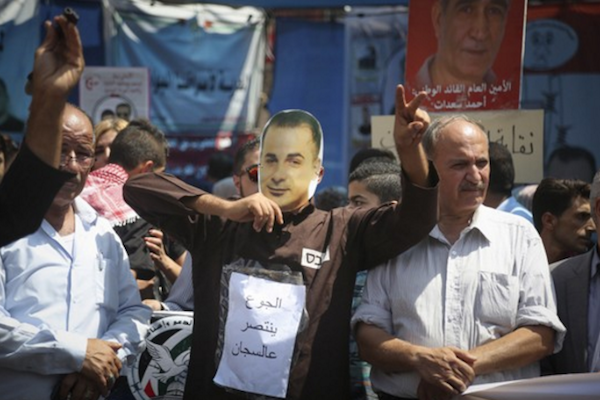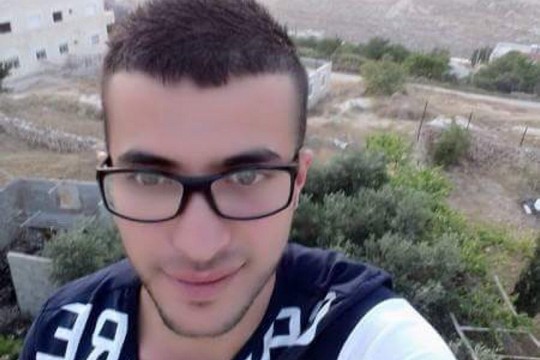Israel is holding the three men in prison without charge or trial. One of them was in immediate danger of death as a result of nearly 70 days on hunger strike.
By Noam Rotem

Three Palestinian men being held by Israel in administrative detention announced the end of their hunger strikes on Wednesday. The announcements followed negotiations with Israeli authorities, as a result of which their administrative detention orders will not be renewed or extended. One of the three, Malik al-Qadi, is expected to be released from custody on Thursday, and the brothers Mahmoud and Muhammad Balboul will be released on December 8.
Israel uses administrative detention orders to imprison Palestinians without charge or trial. Because they are often not even told of what they are accused, it is impossible to defend themselves or successfully challenge the detention order. As of July 31, the latest period for which data was available, Israel was holding 643 Palestinians from the West Bank, East Jerusalem and Gaza Strip in administrative detention, not including Palestinian citizens of Israel.
Al-Qadi and the Balboul brothers started their hunger strikes more than two months ago. Malik al-Qadi, a communications student at Al-Quds University, stopped eating 68 days ago to protest his administrative detention order. Since then, he went on an “Irish hunger strike,” in which he drank water without any minerals, salts or supplements.
The Balboul brothers, who have been on hunger strike for close to 80 days, also began with an “Irish hunger strike,” but after some 50 days began taking vitamins and minerals in an attempt to prevent irreversible damage to their bodies.

A group of Palestinian and Israeli human rights organizations sent a letter to European Union foreign policy chief Federica Mogherini on Monday asking her to intervene in helping to release al-Qadi, saying that “he might have only a few days to live.” The organizations also asked for her help in releasing the Balboul brothers.
“Victory parades” are planned in various locations throughout the West Bank to mark the administrative detainees’ “victories,” although at least two will remain in Israeli detention through the duration of their detention orders.
Muhammad and Mahmoud Balboul were arrested in a raid by Israeli soldiers on their home in June, and were put in administrative detention after Shin Bet agents were able to “break” their 14-year-old sister, who also spent three months in jail. Their father was killed by Israel soldiers over 10 years ago. The IDF Spokesperson stated that the “two were involved in severe military activities while endangering the security of the area.”
Malk al-Qadi, a 20-year-old journalist, began his hunger strike to protest his administrative detention on July 15. Al-Qadi was arrested on May 23, was interrogated, and put in administrative detention after the Shin Bet decided not to charge him. Earlier this month he was put into a medically induced coma for several days. The military claims he is a member of Palestinian Islamic Jihad.
Last week Israel’s High Court of Justice upheld a law that allows force feeding hunger striking prisoners if their health condition is deemed to be life-threatening, and if the measure is approved by the attorney general and a District Court judge. The Israel Medical Association, however, has in the past advised physicians not to carry out force feeding orders.
The Declaration of Malta on Hunger Strikers, to which Israel is a signatory, unequivocally forbids force feeding and establishes that the practice amounts to torture, which is forbidden also by the 1975 Tokyo Declaration.
Noam Rotem is an Israeli activist, high-tech executive and blogger at Local Call, where this article was first published in Hebrew. Read it here.
